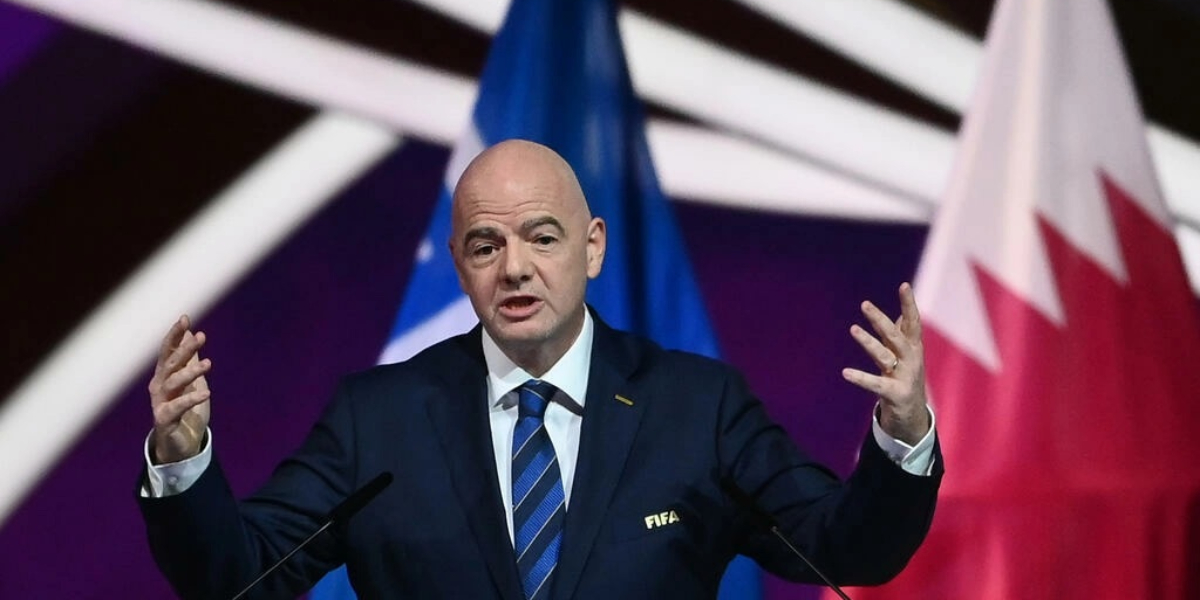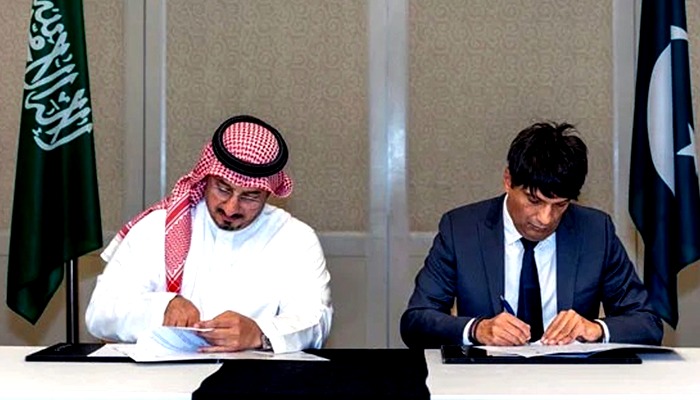DOHA: The annual congress of football’s world governing body on Thursday was overshadowed by lingering disputes over FIFA’s decision to play the World Cup in Qatar, compelling its president Gianni Infantino to stress that the event had already brought change to the Arab state.
Only 235 days before the first World Cup in the Middle East began, a rare female voice in international football spoke out at the congress, saying that giving the tournament to Qatar 12 years ago was “unacceptable” due to the country’s human rights record.
FIFA, according to Lise Klaveness, the Norwegian football association’s president, must behave as a “role model” when it comes to human rights and other moral matters like Russia’s invasion of Ukraine.
Infantino’s statement that he will run for a new term in 2023 and that FIFA would make a record seven billion dollars in income for the 2019-2022 accounting cycle was overshadowed by the debate surrounding Qatar.
Much of it comes from the Qatar World Cup’s television and marketing earnings, but FIFA and the hosts have been obliged to defend the tournament on numerous occasions.
Klaveness emphasised the importance of human rights in the host country.
“The migrant workers injured or the families of those who died in the build-up to the World Cup must be cared for,” she remarked at the close of the meticulously scripted congress, when individual federations were free to speak out.
Although a few workers have perished while constructing new World Cup stadiums in Qatar, international bodies have attempted to improve the country’s overall labour record.
“There is no room for employers who do not ensure the freedom and safety of World Cup workers,” she added.
All World Cup hosts were required to safeguard gay and transgender people’s rights. In Qatar, lgbt is prohibited.
Klaveness also accused FIFA authorities of responding to Russia’s invasion of Ukraine in a “hesitant” manner. The Russian national team has been eliminated from the World Cup, although the country is still a member of FIFA. The congress received a video greeting from the president of the Ukrainian football association. He declared his country would “beat the aggressor” while wearing a yellow and blue bullet-proof vest.
Klaveness’ remarks about Qatar echoed those made by a number of European nations and teams in the run-up to the tournament, which runs from November 21 to December 18.
Hassan al-Thawadi, the head of Qatar’s organising committee, stepped to the stage right away to express his disappointment that Klaveness had made no attempt to talk with Qatari authorities before coming out.
He predicted that the Middle East’s first World Cup would leave “truly transformational social, human, economic, and environmental legacies.”
Qatar believes that much of the criticism it has received is unjustified. It has abolished a labour law that allowed companies to prevent migrant workers from leaving the country or changing employment. It also established a minimum wage.
Qatar is “no paradise,” according to Infantino, but it has made significant progress since being awarded the event in 2010.
He said Qatar has made progress in a few years “that in other countries has taken decades”.
“The only way to provoke positive change is through dialogue and engagement,” he said adding that Qatar would put on “the best World Cup ever”.
On Wednesday, FIFA revealed that 800,000 of the three million tickets had been sold. After the draw in Doha on Friday, when fans will know who their nations will play against, an even higher rise in second-round sales is expected.
Infantino’s candidacy for a third term as FIFA president could hinge on the success of the Qatar event.
“I want to tell you that I will be standing for re-election next year,” Infantino said at the end of the congress.
Until taking over FIFA in 2016, the 52-year-old Swiss-Italian lawyer served as secretary general of European body UEFA before being ousted by predecessor Sepp Blatter due to a corruption scandal.
Since then, FIFA has strengthened its governance and raised the amount of money given back to national federations from its vast resources.
However, the World Cup in Qatar and suggestions for a World Cup every two years have put his leadership to the test.
Infantino attempted to backtrack on the biannual event, which is vehemently opposed by Europe and South America, saying that he was merely acting on instructions from Congress to investigate the feasibility of the plan.
For the latest Sports News Follow BOL News on Google News. Read more on Latest Sports News on oldsite.bolnews.com





















